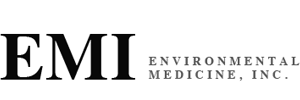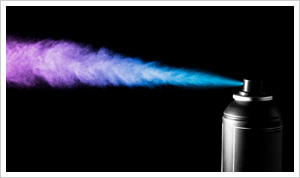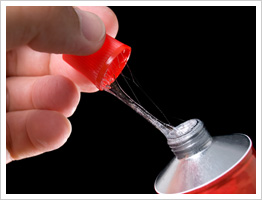
|
“Great communication, very open to requests for customized service, excellent turn-around times, fair pricing. I am much more than satisfied. I recommend EMI at every opportunity. And then there are the people... I always feel like I am amongst friends in your company.” Mr. Ben Gavett
Director of Safety Compliance Golden Artist Colors, Inc. ASTM D-4236 ASTM International, formerly American Society for Testing and Materials, is an organization that sets standards accepted around that world for manufacturing and materials, products and processes, systems and services. ASTM D-4236 Standard Practice for Labeling and Chronic Health Hazards is the set of standards established for labeling art materials for known chronic health hazards. The designation "conforms to ASTM D-4236" means all of the potentially chronic hazards of the art product have been clearly labeled on the product packaging including, among them, safe handling instructions, sensitizing components, information sources, labeling contents and product size. LHAMA LHAMA is an acronym for the Labeling of Hazardous Art Materials Act. A LHAMA certification requires the use of the ASTM D-4236 standards for art materials labeling for a wide interpretation of all artists' materials manufactured for any kind of art or craft including work done by children that is sold in the United States. Proposition 65 (P65) In 1986, California voters approved the Safe Drinking Water and Toxic Enforcement Act of 1986, otherwise known as Proposition 65. P65 requires the State of California to publish and update a list of chemicals known to cause cancer or birth defects or other reproductive harm. This list published by the Office of Environmental Health Hazard Assessment has grown to include over 900 chemicals since it was first published in 1987. P65 requires businesses to notify Californians about significant amounts of listed hazardous chemicals in any of the company's products manufactured, sold or shipped in California. EMI equips manufacturers with a sophisticated resource that can conduct a comprehensive review of a product formula to assess if any component is on the P65 list. If a component on the list presents a significant risk, EMI would provide the label information the product would require. Should the product manufacturer wish to challenge the requirement by the state of California, it can call upon EMI and EMI's world renowned toxicologist Dr. Rudolph J. Jaeger, DABT, ERT to conduct a risk assessment. The risk assessment explores if, based on the intended use, the product in question does not require a P65 warning. EMI can also explore the possibility of replacing the listed ingredient with a suggested alternative ingredient not on the P65 list.
Expert Testimony
In any situation requiring expert testimony such as a P65 challenge, EMI's Dr. Rudolph J. Jaeger DABT, ERT can be retained to provide expert testimony.
REACH
REACH (Registration, Evaluation, Authorization and Restriction of Chemicals) is a regulation of the European Union, that aims to improve the protection of human health and the environment through the better and earlier identification of the intrinsic properties of chemical substances.
REACH Regulation places responsibility on industry to manage the risks from chemicals and to provide safety information on the substances.
RoHS R0HS (Restriction of Hazardous Substances) originated in the European Union and restricts the use of specific hazardous materials found in electrical and electronic products. |
ServicesREGULATORY REVIEW LHAMA Certification for ASTM D-4236An EMI art materials review for compliance with ASTM D-4236 using the guidelines outlined in Code of Federal Regulations (CFR) Chapter 16 1500.135 affords a thorough and comprehensive analysis.
LHAMA Certification continues »
|
| Environmental Medicine, Inc. 778 Carver Ave. Westwood, NJ 07675 |
P: 201.666.7929 F: 201.666.8611 Elaine@envmed.com |
Website and marketing material produced by:  www.bhallassoc.com |
 While some competitors only provide a formula evaluation for chronic hazards with no physical or chemical considerations in their analysis, EMI offers a full complement of analytics and certifications.
While some competitors only provide a formula evaluation for chronic hazards with no physical or chemical considerations in their analysis, EMI offers a full complement of analytics and certifications. For organizations that lack either the resources or the desire, EMI, with its comprehensive skill set and global resources, will assume any or all of the responsibilities necessary to successfully shepherd a client company's product through the regulatory process to ensure compliance and assure required labeling and safety.
For organizations that lack either the resources or the desire, EMI, with its comprehensive skill set and global resources, will assume any or all of the responsibilities necessary to successfully shepherd a client company's product through the regulatory process to ensure compliance and assure required labeling and safety. EMI's extensive knowledge in the area of consumer product as well as art and craft materials composition can prevent client missteps in the formulation process. Such missteps prior to seeking certification can be costly and time consuming.
EMI's extensive knowledge in the area of consumer product as well as art and craft materials composition can prevent client missteps in the formulation process. Such missteps prior to seeking certification can be costly and time consuming. For a broad spectrum of situations including environmental, occupational and consumer product, EMI provides expert deposition and trial testimony for litigation support concerning alleged routes of exposure or alleged adverse health effects. EMI litigation support can take the form of position papers and reports as well as interpretation of complex medical issues and conditions. EMI can, also, identify and coordinate a team of experts relevant for a specific case.
For a broad spectrum of situations including environmental, occupational and consumer product, EMI provides expert deposition and trial testimony for litigation support concerning alleged routes of exposure or alleged adverse health effects. EMI litigation support can take the form of position papers and reports as well as interpretation of complex medical issues and conditions. EMI can, also, identify and coordinate a team of experts relevant for a specific case.